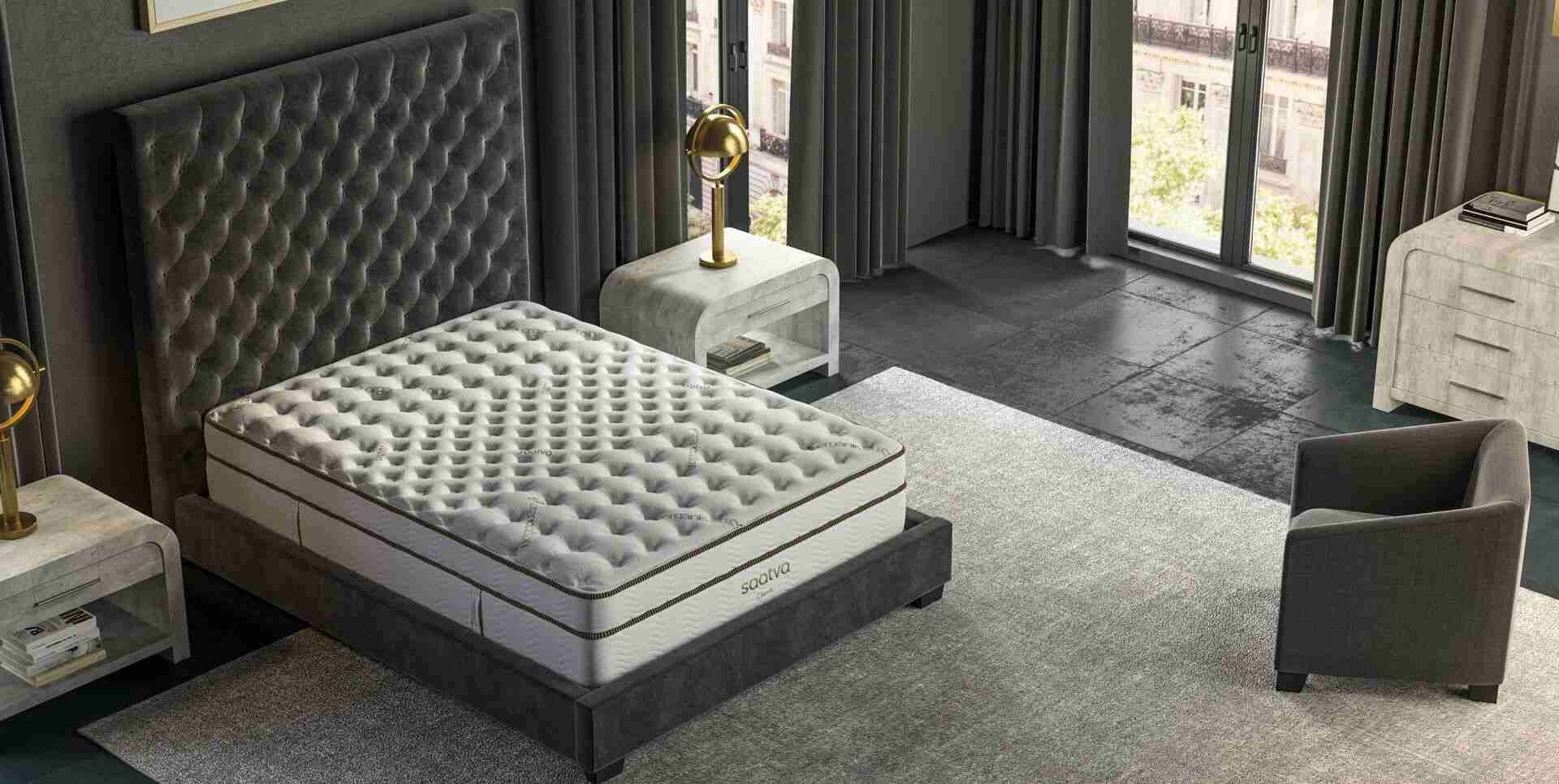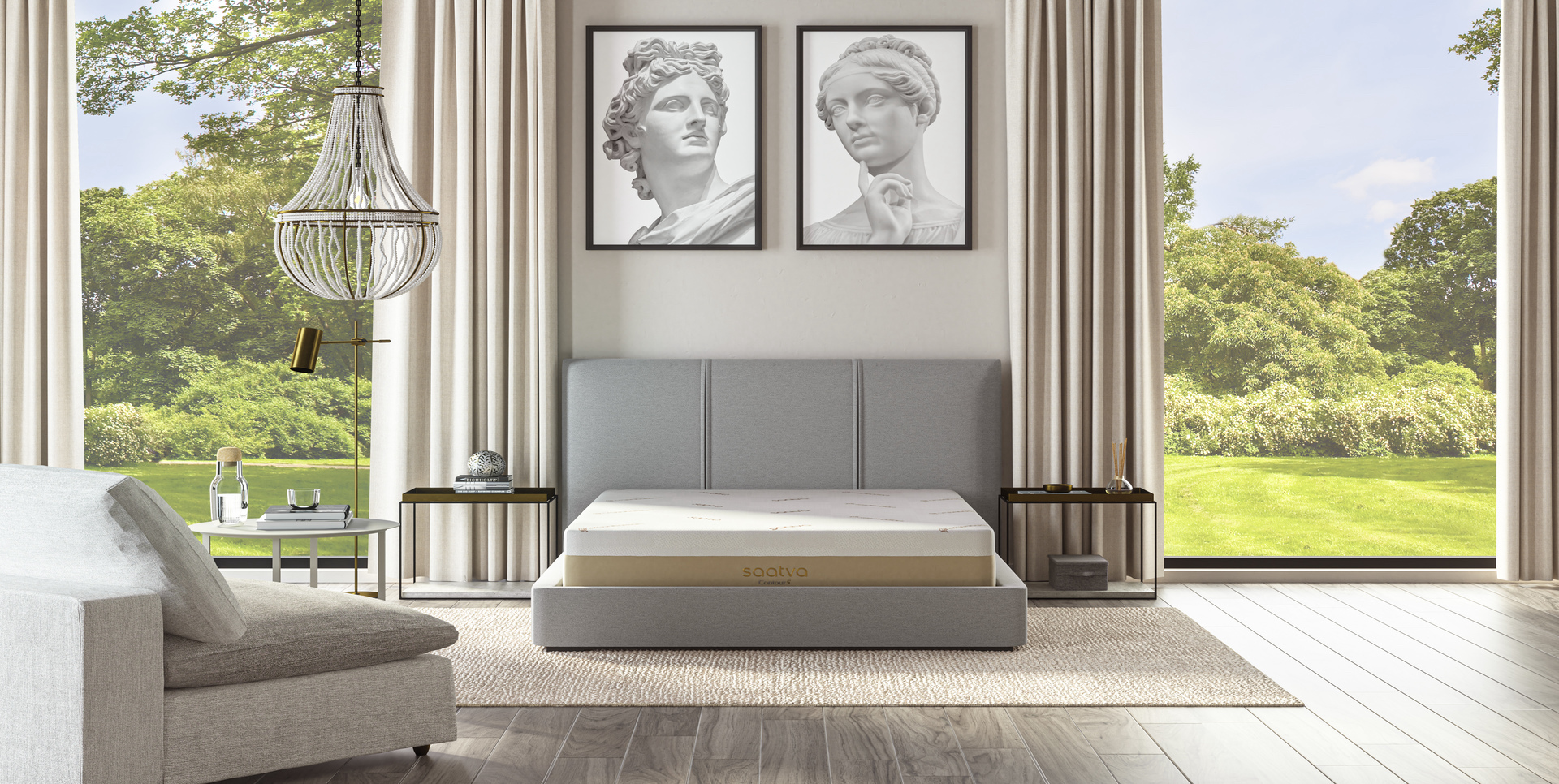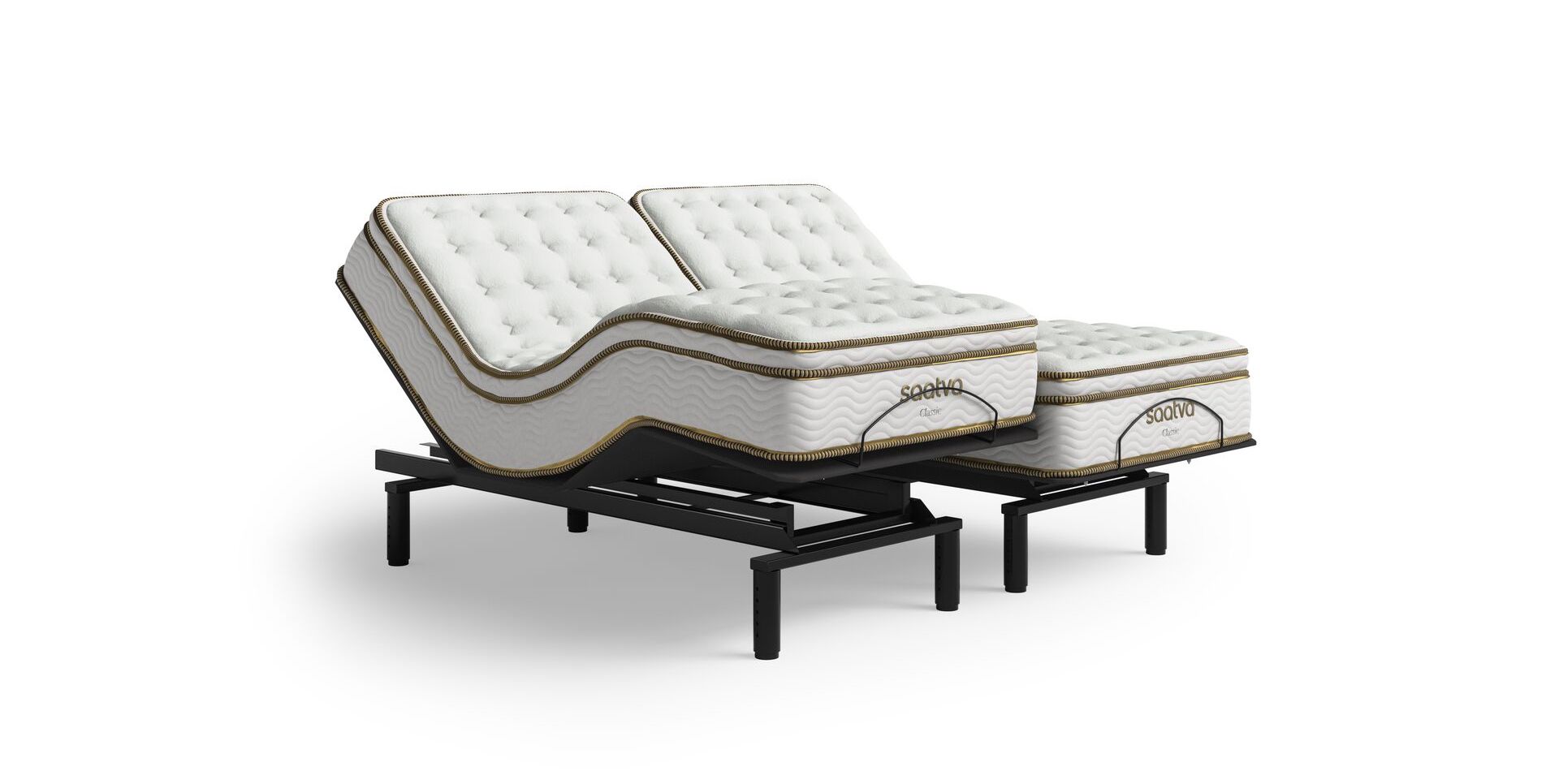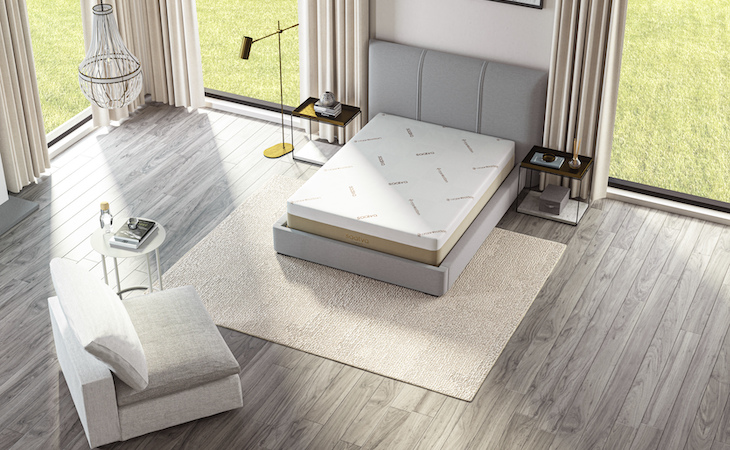Once you’ve hit the so-called golden years—aka you’re over the age of 65—you’d think that getting enough sleep would become easier. Chances are you’re retired or have taken a step back from demanding work responsibilities, so the Sunday scaries don’t quite affect you the way they used to. And long gone are the days you’d have to stay up late to care for a sick kid or worry about your teen who’s out with friends.
But in reality, sleep during the senior years has a unique set of challenges. According to the National Sleep Foundation (NSF), people over 65 have a harder time staying asleep throughout the night. In fact, starting at around the age of 50, it becomes more difficult to enter deep sleep, the most restorative stage of sleep.
In a 2005 NSF poll, older adults reported that they were more likely to wake up throughout the night than younger and middle-aged adults. Moreover, insomnia is prevalent in older adults, with the most common complaints being difficulty falling asleep or maintaining sleep, according to a June 2015 study in the Journal of Clinical Sleep Medicine.
That said, there are some easy steps you can take to improve your sleep—and it all starts with finding the right mattress. Whether you’re a senior struggling to get decent snooze time at night or the caregiver of an aging parent or family member, here’s everything you need to know about finding the best mattress for elderly people.
Watch this video to learn more about how to choose the best mattress for seniors:
Best mattress types for seniors
Here, we’re breaking down popular mattress types for seniors and what to look for in each one.
Hybrid innerspring
A hybrid innerspring mattress is a great option for older adults who get up from their beds often throughout the night. Look for a hybrid mattress made with a base of individually wrapped coils, which move independently and contour to your body much better than other coils.
“Because the coils are not physically attached to each other, they provide outstanding motion isolation, meaning your sleep partner will not feel any tossing and turning that may take place during the night,” says Bill Fish, managing editor at SleepFoundation.org.
Hybrid mattresses feature an upper comfort layer made of foam, usually memory foam or latex. Both materials are good choices for seniors because they relieve pressure on achy joints. If you’d like a hybrid mattress with a memory foam comfort layer, look for one that has cooling features, like graphite or gel, because memory foam tends to sleep hot. Latex, on the other hand, is naturally cool.
Memory foam
A
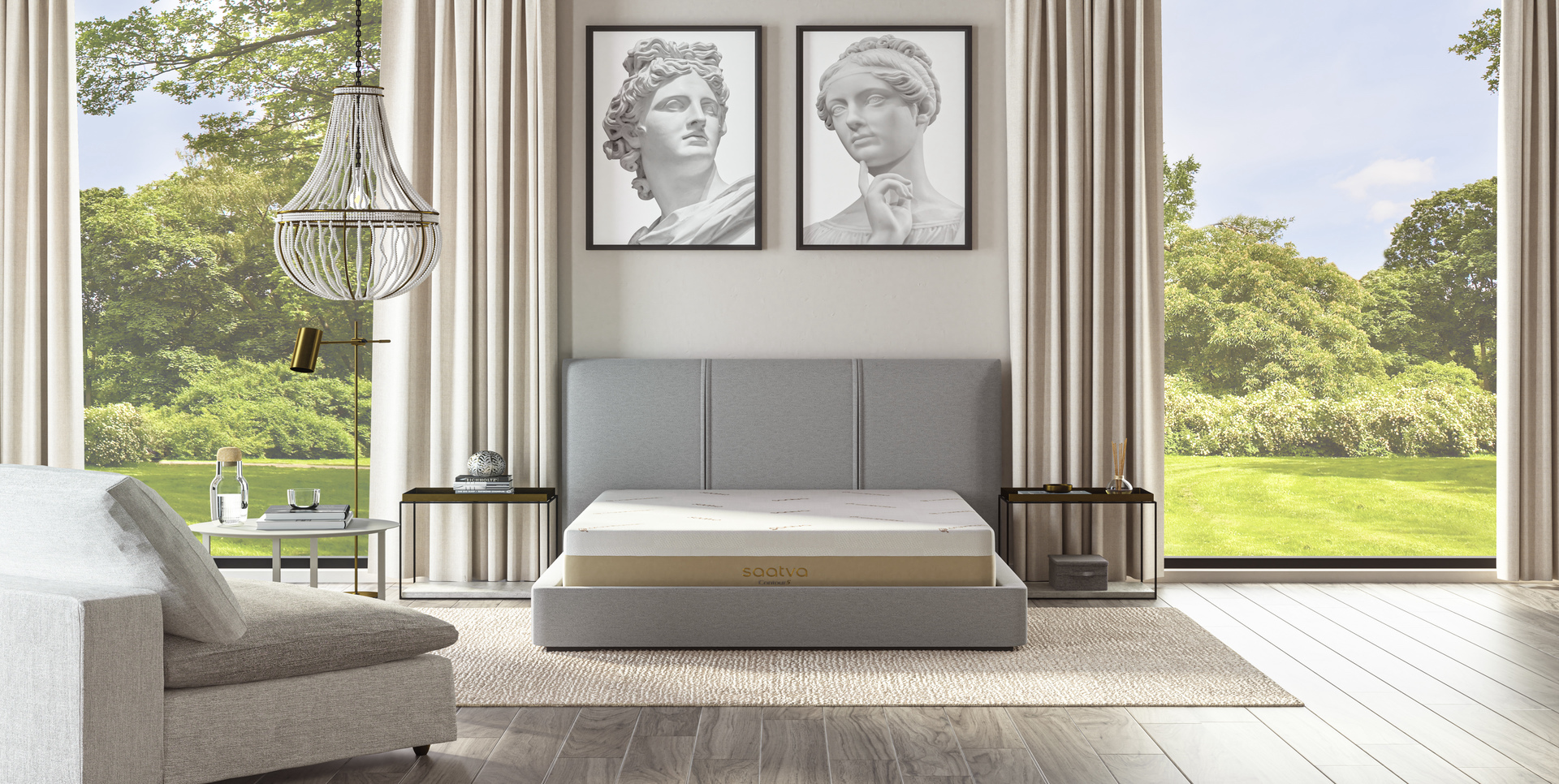
The most luxurious memory foam with adaptive cooling & body-hugging support
is also a solid pick for seniors because it’s great at limiting motion transfer (so your partner won’t feel if you get up in the middle of the night, or vice versa).
Plus, “people with joint pain will appreciate the conforming ability of a memory foam mattress, as it gives the feeling of hugging the pressure points of the body,” says Fish.
As with a hybrid mattress, look for a memory foam mattress that’s infused with graphite or cooling gel to prevent overheating while you sleep. And make sure to select a memory foam mattress with a medium firmness because one that’s too soft can make you feel stuck when you try to stand up or switch positions while lying down.
Latex
A

Our dual-sided organic natural latex mattress for buoyant, pressure-relieving comfort
is another good option for seniors. It offers the same pressure relief and motion isolation as memory foam with the buoyancy of an innerspring mattress. That means you’ll never feel like you’re stuck in the mattress.
“A latex mattress tends to adjust to the curves of a sleeper rather than just sink beneath the weight of the sleeper like some memory foam mattresses have a tendency to do,” says Fish. Look for a latex mattress with zoned lumbar support to help protect your back during sleep.
Plus, natural latex is hypoallergenic and breathable, making it an excellent option for people with allergies or those who sleep hot.
Adjustable
Older folks who live with a medical condition, like obstructive sleep apnea, heart disease, or COPD, could benefit from an adjustable bed, which allows you to sleep with your head and chest slightly elevated and can help keep your airways clear.
Adjustable beds and
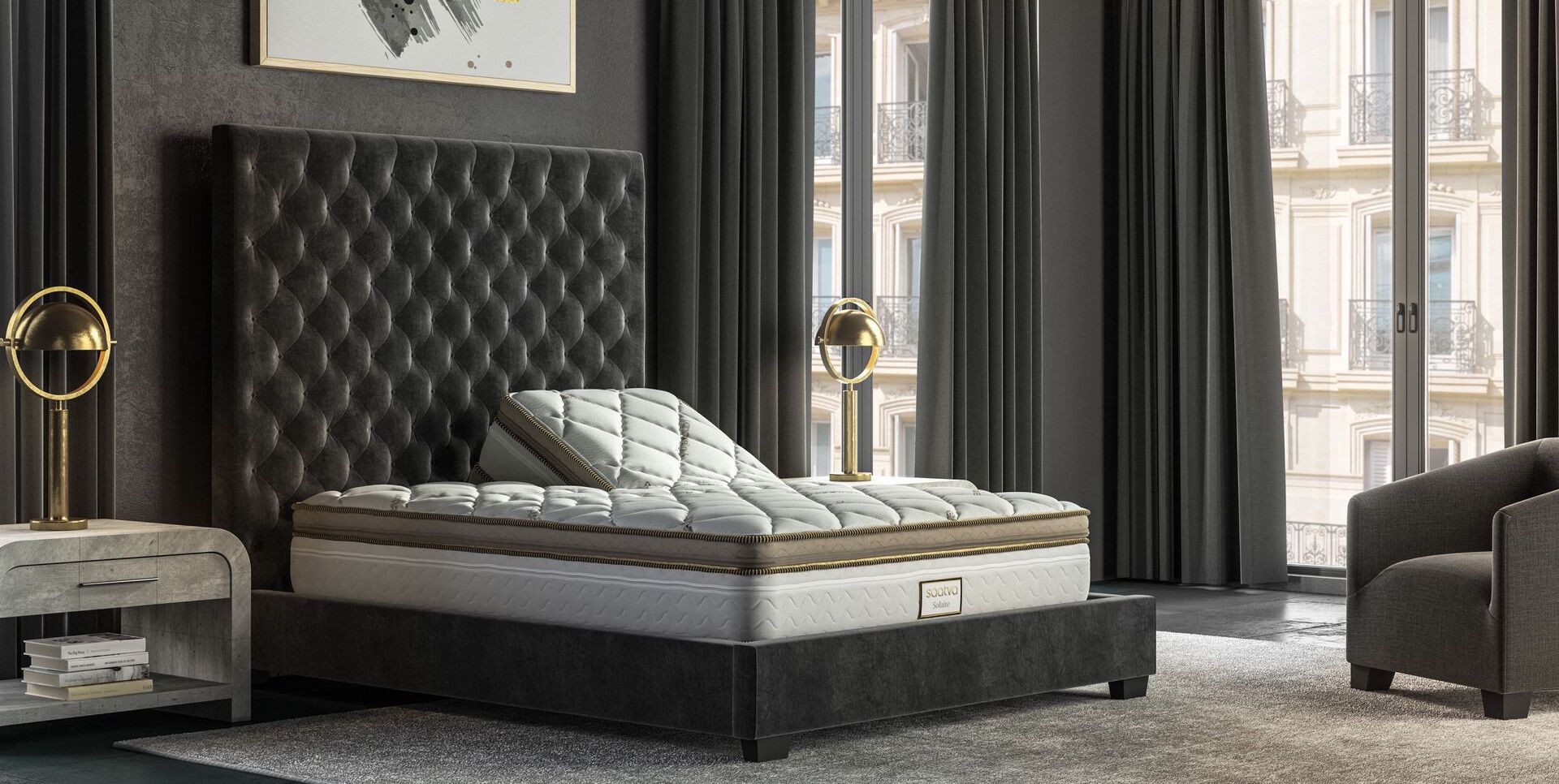
Our luxurious customizable mattress with 50 precise firmness options
also make it easier for people with mobility issues to get in and out of bed and change positions. Some adjustable beds also come with lighting under the bed to help you see where you’re going late at night. (Here’s how to find the best adjustable bed for you.)
Mattress for every ache and pain
Seniors often deal with a variety of aches and pains, all of which can make getting a good night’s sleep difficult. The good news: A new mattress can help ease some of the pain elderly people experience at night, says Tom Tozer, chiropractor at Imperium Chiropractic in Eau Claire, Wisc.
Here are some tips to help you find the right mattress based on your pain and make sleeping more comfortable at night.
Arthritis
Arthritis is different from an occasional crick: Sufferers often describe it as an ongoing dull ache or a burning or grinding sensation, and there’s usually swelling and stiffness too.
Tozer recommends an adjustable bed for those with arthritis because it allows you to elevate certain areas, like the head and legs, which can help them get better rest. While adjustable beds don’t necessarily support good posture, they do help make older people feel more comfortable, he adds.
If an adjustable bed isn’t in your budget, Tozer suggests using a mattress topper made with memory foam or latex to help reduce pressure in the shoulder and hip joints.
Fibromyalgia
Fibromyalgia is an inflammatory condition that causes scattered pain throughout your body. While fibromyalgia can affect anyone at any age, it’s most common in middle-aged and older adults.
A mattress that conforms to your body and helps to relieve pressure points, such as a memory foam or latex mattress, may make it easier for you to get a good night’s rest if you have fibromyalgia. Doctors usually recommend firmer mattresses, which offer better support for your spine. Very soft mattresses can aggravate pain by getting you into bad sleep positions.
Back pain
Tozer says that the best mattress for back pain is one that promotes good posture, according to your sleep position. Whether you’re a side or back sleeper (he doesn’t recommend stomach sleeping), you want to have your head aligned with your shoulders and your shoulders stacked over your hips. So if you sleep on your back, for instance, you might want to find a medium firm mattress that supports the natural curves of your spine.
However, if you’re a side sleeper, going with a mattress on the softer side might help prevent adding pressure to your hips and shoulders. Tozer also recommends using a pillow between your knees to keep your hips and pelvis in line, which can take a little stress off your lower back.
Hip pain
When it comes to alleviating hip pain, Tozer recommends a medium-firm hybrid mattress made with memory foam since it’ll support and cushion your joints. A latex mattress is another good option.
Tozer also suggests selecting a mattress foundation with the appropriate height. “Consider their ability to enter and exit the bed,” he says. “A mattress with a 14-inch box spring might be good because it makes it easier for [someone with hip pain] to stand up and get in and out of bed.”
Lastly, avoid sleeping on your side because this can add more pressure and leave you with “dead arm,” a tingling, numbing sensation that happens when you shift your weight to your arm as you sleep.
Neck and shoulder pain
Tozer says that poor posture is the most common cause of neck and shoulder pain. “Sleeping on an unsupportive mattress at night can exacerbate this pain,” he says. So he recommends choosing a mattress that promotes good posture when side or back sleeping. To keep your spine in neutral alignment while you sleep, choose a mattress with medium firmness.
Tozer also advises using a pillow of the appropriate thickness to ease neck pain. “Find a pillow that’s thick enough to fill the space between your head and the bed if you sleep on your side,” he says. Similarly, a pillow that’s thick enough to keep your head in line with your shoulders and hips can help back sleepers.
FAQs
Is a soft or firm mattress better for seniors?
Seniors often deal with a variety of aches and pains, so they should choose the firmness level that best suits their health and sleep needs. A soft mattress, for example, is best for side sleepers and those who would like to prevent adding pressure to their hips and shoulders. On the other hand, a medium-firm mattress can support back sleepers and the natural curves of their spine.
Is a memory foam mattress good for the elderly?
A memory foam mattress is a solid pick for seniors because it’s great at limiting motion transfer, hugs the pressure points of the body (which helps those with joint pain), and can prevent overheating while you sleep.
Suffering from chronic pain? We’ve rounded up our best advice on how to keep pain from ruining your sleep.


